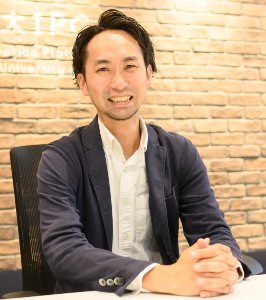Venture Capital (VC) has played a significant role in driving innovation and economic growth by providing essential financing for startups and early-stage enterprises. With rising interest rates and complicated loan approval processes, many entrepreneurs are turning to VC financing opportunities to bridge the gap between funding sources for innovation and traditional, lower-cost forms of finance available to existing businesses.
To attract private equity funds and entice entrepreneurs with high-return ideas, the VC industry must offer a satisfactory return on capital, provide appealing returns for its members, and demonstrate promising upside potential. However, consistently outperforming investments in inherently risky business operations remains a significant challenge
Despite not being long-term ventures, the goal of VC investments is to provide financial support to a company’s balance sheet and infrastructure until it achieves a certain size and level of credibility that makes it attractive for acquisition by a corporation or provides the opportunity for liquidity in the institutional public equity markets.
Due to the saturation of the startup market and ongoing inflation concerns, many investors are opting for a more conservative approach. Venture capitalists today are adopting a more cautious, long-term strategy, departing from the previously prevalent aggressive, short-term investment approach.
Venture Capitalists Measure When Funding a Startup
 Kei Furukawa, a Partner in Investment & Business Development at the UTokyo Innovation Platform Co (UTokyoIPC), presents the Innovative Platform as the entity in charge of enhancing the University of Tokyo (UTokyo)’s innovation ecosystem. It is tasked with ensuring returns on its investments as a funding corporation as well as disseminating academic research outcomes from the world-leading university in Japan to society as a whole.
Kei Furukawa, a Partner in Investment & Business Development at the UTokyo Innovation Platform Co (UTokyoIPC), presents the Innovative Platform as the entity in charge of enhancing the University of Tokyo (UTokyo)’s innovation ecosystem. It is tasked with ensuring returns on its investments as a funding corporation as well as disseminating academic research outcomes from the world-leading university in Japan to society as a whole.
“UTokyo IPC aims to accelerate innovation on a global scale that leveraged the University of Tokyo through three key activities: supporting entrepreneurs, facilitating corporate innovation, and investing in startups,” Kei reveals.
The company’s primary activity is Venture Capital (VC), which consists of meaningful investments and the exiting of those portfolios. A concurrent objective is to apply UTokyo’s research, intellectual assets and other resources to businesses.
While the ultimate goal is to make investments, Kei shared that they also conduct extensive research and academic work, that can be commercialised.
The company has invested in around 60 companies or portfolios that are primarily focused on various fields including biotech (drug discovery, medical devices, agriculture), robotics, aerospace, IT and AI (mainly enterprise solutions).
“It is pertinent that our company was established as a result of a political decision, indicating that the government is currently experiencing a period of uncertainty,” Kei explains. “Ministry of Economy, Trade and Industry (METI), and the Ministry of Education, Culture, Sports, Science and Technology (MEXT)made a joint decision to increase funding for startups emerging from universities, to explore ways to transform research into viable business ventures. This decision ultimately led to the creation of our company.”
Typically, national universities in Japan are not permitted to invest in companies, but an exception was made in this case. As a result, the VC firm is deeply invested in the growth of startups and takes a deep interest in their success.
Kei explained that the national budget was used to establish our funds. It is noteworthy that the funds comprise public and private sources, with a government disbursement allowing it to undertake investments with significantly greater risk.
He acknowledges that the company employs a matrix to evaluate the success of its investments. However, due to their focus on early-stage deep tech investments, it can be extremely challenging to conduct such measurements, particularly at an early stage. Nonetheless, his team closely monitors the progress of each investment and ensures that the milestones established for both business and technology are met.
The company operates an incubation and accelerator programme called “1st Round” (https://www.1stround.jp/) that serves as a bridge between academia and business. It is a programme co-hosted by 13 Top national and private universities from Japan. To participate in the initiative, start-ups are not required to be incorporated but must do so if chosen. If already incorporated, they must be under 3 years, and must not be funded by a VC at application timing.
He notes that they have numerous corporate sponsors, consisting of major Japanese corporations of a wide spectrum of industry fields. They strongly encourage partnerships between the startups and the sponsoring companies to conduct proof of concept (POC) projects together. This safe and close-knit community has resulted in many successful ventures between companies and startups.
The venture capitalist arm has a follow-on investment strategy aimed at providing support to the companies they invest in, particularly during challenging times. They take a hands-on approach by having members sit or observe boards meeting of portfolio companies to offer guidance and mentorship for business development, HR support (has own recruitment platform “Deep tech Dive” (https://www.utokyo-ipc.co.jp/dive/), and public relations. Also since their fund terms are 15 years, relatively longer than other VC funds, which helps deep tech startups to firmly bring technology to the market.
The VC strongly believes in the value of persistence and is committed to not giving up on its investments. They are determined to work tirelessly until the very end to revitalise the company, a trait they consider critical of a successful investor.
As a university subsidiary, they do not limit themselves to any particular investment areas and remain open to various types of startups. While there may be some sectors that are more attractive to non-tech venture capital, they generally favour startups that may be complex to comprehend but possess the potential to bring about transformative changes in the world.
They take a long-term investment approach and have transitioned from short-term rapid investment to supporting social impact and sustainability, particularly in healthcare startups. However, they also must balance this with the need for financial returns.
When making investments, financial returns are undoubtedly important, but they are not the sole factor that should be taken into account. The overall impact of the investment, including its social, environmental and ethical implications, should also be carefully considered.
Startups have several options for obtaining capital, such as crowdfunding, venture loans, and revenue-based finance. Each strategy has its own advantages and disadvantages, and therefore, entrepreneurs must have a deep understanding of these options.
Having multiple funding options can be advantageous, provided that entrepreneurs and shareholders are well-informed about the pros and cons of each. A thorough understanding of the funding options can help them make an informed decision that aligns with their business goals and objectives.
Urban Ideas and Solutions Through LKYGBPC
The Lee Kuan Yew Global Business Plan Competition (LKYGBPC), which began in 2001, is a biennial global university start-up competition hosted in Singapore. Organised by Singapore Management University’s Institute of Innovation and Entrepreneurship, focuses on urban ideas and solutions developed by student founders and early-stage start-ups.
According to Kei, as an entrepreneur, it is essential to have the appropriate capacity and seek guidance from knowledgeable individuals, particularly in the early stages of the business. As a university subsidiary, UTokyoIPC is well-equipped to assist entrepreneurs and help prevent them from making fatal mistakes out of ignorance.
The success of promoting entrepreneurship in culture depends on the ecosystem and environment that encourages and supports it. Singapore has a strong entrepreneurial environment, with universities such as SMU and NUS emphasising entrepreneurship. In contrast, Japan has a larger economy but tends to be more conservative.
The University of Tokyo has been actively fostering entrepreneurship by offering courses to students, which has led to the creation of numerous companies. The critical factor behind this success is the creation of an environment that supports entrepreneurship and motivates people to pursue it. Marketing and promoting the benefits of entrepreneurship are also vital to its success.
“The programme is expanding and involving many other universities beyond Singapore. This makes LKYGBPC an excellent platform for startups or the venture capital industry, as it is close to many countries in the region.” Kei believes.
Since joining the company in 2019, Kei has been actively involved in supporting startups, professors, and students through various initiatives. His passion is on deep tech startups or those with the potential to bring about positive changes in the world. He has invested in a diverse range of fields, including IT, robotics, AI and agritech.
Many successful entrepreneurs come from different backgrounds, such as business, engineering, finance, marketing and more. While having a technical background can be advantageous in some industries, it is not always necessary for achieving business success, Kei opines.
“Ultimately, having a strong business sense is more crucial than any specific technical background. What truly matters is possessing a good grasp of business and the necessary skills to succeed in it. This entails competencies such as strategic thinking, financial management, leadership, communication, and problem-solving,” Kei concludes.
















